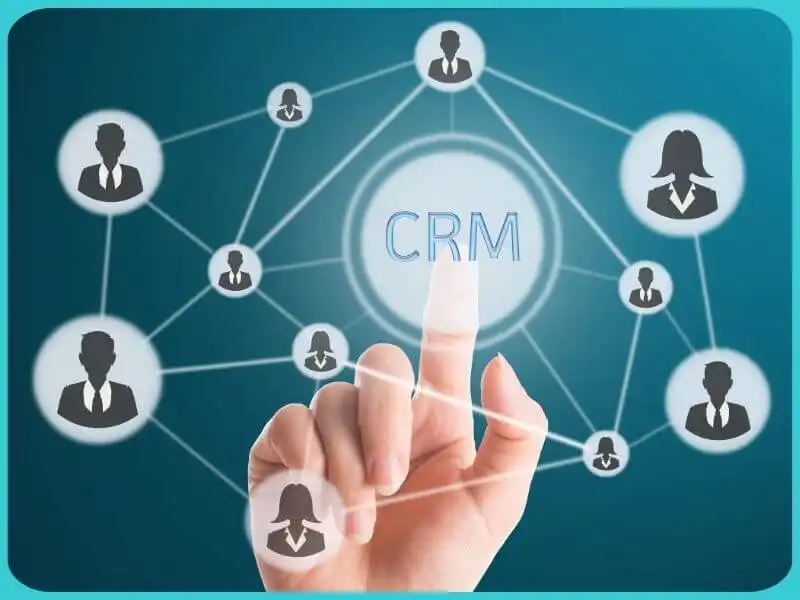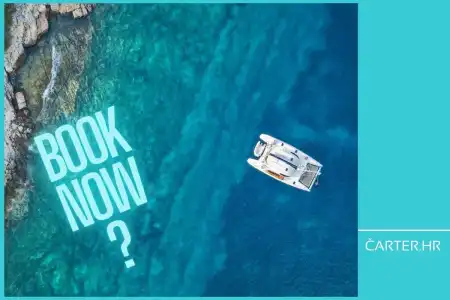
- 01.07.2024.
- News, Marketing, Management
The sailing season always brings unique challenges. Amongst others, it requires precision for a yacht charter company to efficiently thrive. Amidst the complexities of bookings, guest management, and logistical coordination, CRM systems emerged as indispensable tools. These systems have shown to be pivotal in enhancing operational efficiency across the whole company.
The yacht charter sector is bustling with activity as we approach the peak of the sailing season.
Within a yacht charter company, each role, from the office staff to the base managers, plays a critical part in the success of day-to-day operations.
Even the smallest lapse in the organisation can ripple through the company, leading to booking mishaps, unsatisfactory customer service, and even financial losses.
Effective organisation isn't merely "nice to have"; it has become a foundational aspect of a successful charter operation.
Challenges in traditional yacht charter management
Often when it comes to implementing new tools what will help their work, yacht charter teams are bogged down by the mindset of:
- "We don't have time."
- "It's too expensive to change."
- "We're used to doing it this way."
These statements, though common, present major roadblocks to progress.
They foster a culture of complacency and are often used to justify the ongoing inefficiencies that plague daily operations, from duplicated efforts to mismanaged client interactions.
The actual cost of this mindset is not just in operational delays but in opportunities missed and resources squandered.
All this could be easily avoided by using a Customer Relationship Management (CRM) system.

The power of Customer Relationship Management
At its core, a CRM system serves as the central hub for all operations within a yacht charter company.
Implementing a CRM can transform the business by:
Centralising customer information
All client data is stored in one place. From past bookings to payment history and personal preferences, this information helps to create personalised interactions and services.
Streamlining communication
CRM ensures all team members are on the same page, reducing errors and speeding up response times.
Efficient scheduling and task management
CRM automates and organises booking schedules, staff assignments, and maintenance tasks, ensuring nothing is lost or forgotten.
Enhanced data analysis and reporting
Your yacht charter gets insights into business performance, customer trends, and revenue management, thus enabling informed decision-making.
CRMs are currently the fastest-growing software in digital marketing. Statistics say the use of CRM increases conversions up to 300%, and some even say that revenue increases by up to 250%. Don't you think this is interesting?

The right CRM for your yacht charter business
Of course, adopting new technology can be daunting, and some common concerns include the investment of time and money and the learning curve for the staff.
While initial CRM setup requires investment, the long-term efficiencies and cost savings far outweigh the upfront costs. Proper training and phased implementation can ease this transition for your yacht charter team, making the CRM system an integral part of the workflow.
Also, our advice is to look for CRMs such as Hubspot, which offers excellent ongoing support and training resources.

What can HubSpot do for yacht charter companies?
HubSpot is a comprehensive and user-friendly platform designed to centralise administrative and business operations.
This platform meets the specific needs of the nautical sector but also adapts to general business requirements, making it a versatile option for improving operational efficiency.
The benefits of HubSpot for your yacht charter business are:
- Streamlines the creation of offers, work orders, and invoices.
- Manages business units, personnel records, and work equipment efficiently.
- Sends automated alerts about document expirations.
- Centralises all documentation for easy, organised access.
- Supports communication through email, SMS, and other channels.
- Simplifies the creation of forms and reports with an intuitive interface.
- Provides advanced analytics for thorough data tracking and insights.
HubSpot significantly enhances digitisation and automation within your business operations, making it an excellent tool for your yacht charter company.
With its help, you'll be able to manage resources more effectively, reduce the administration burden, and reinforce overall business organisation.
"You don't use CRM because you don't have time; you don't have time because you don't use CRM."
If your yacht charter business still shies away from CRM because of perceived time constraints, it's time to see the other side of the medal.
So, start using CRM and watch your company, gradually turn into a more organised, profitable business model.
Integrating a CRM system into your yacht charter will allow you to keep up with the latest technology, as one should, and set your yacht charter business apart in a competitive market.
Equip your employees with the tools they need to succeed, and watch as your operations become more efficient and your guests more satisfied with your service.
Do you need more information about HubSpot or CRMs in general? Contact us, and we'll be glad to help.
For more information like this and on the latest trends in the nautical industry, subscribe to our newsletter.
Categories of trends
- News
- Sale
- Marketing
- SEO
- Web design
- Social media
- Technology
- Regulations
- Management
- Education
- Finances
- User experience
Newsletter
Sign up for the newsletter and receive the latest trends and tips straight to your inbox



